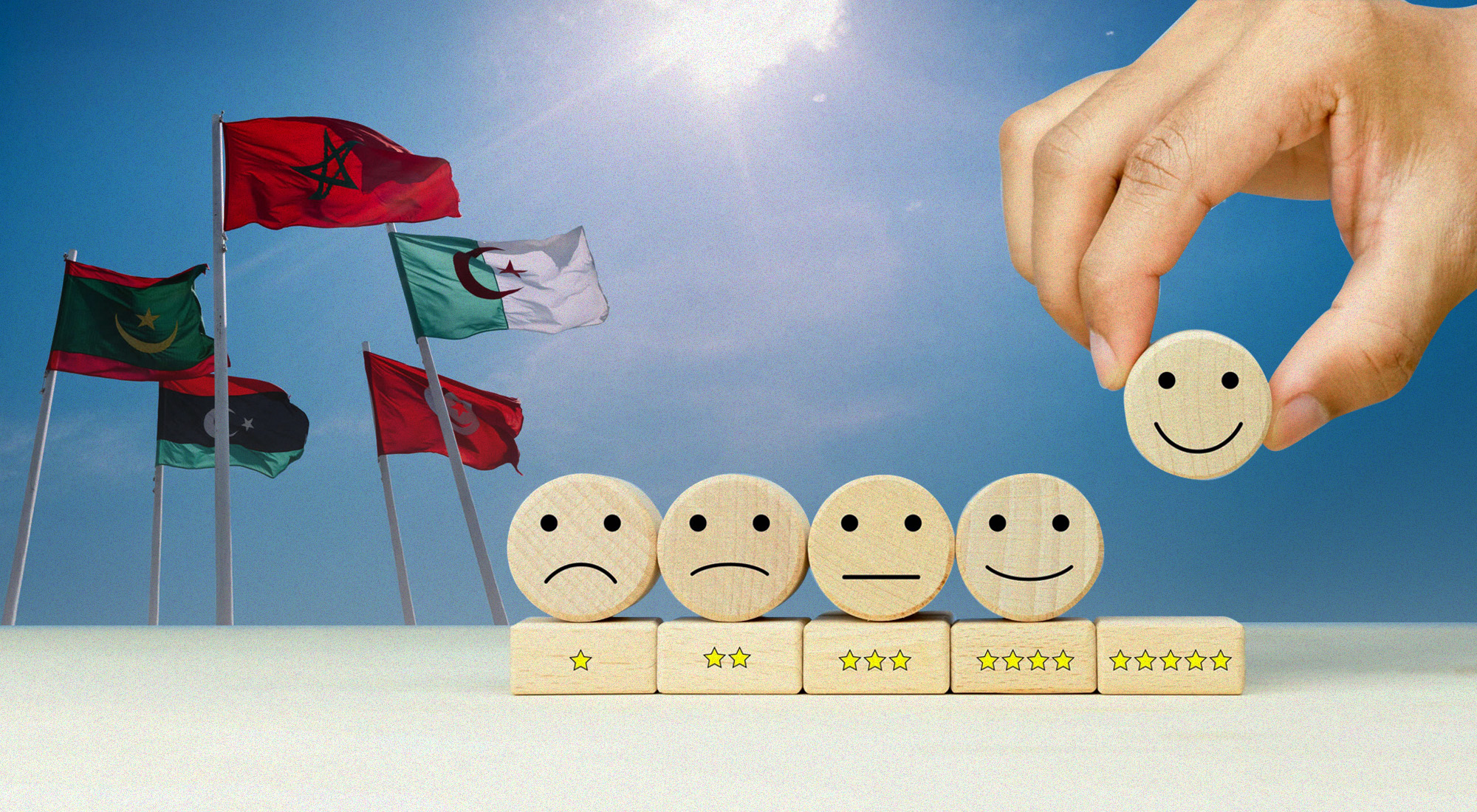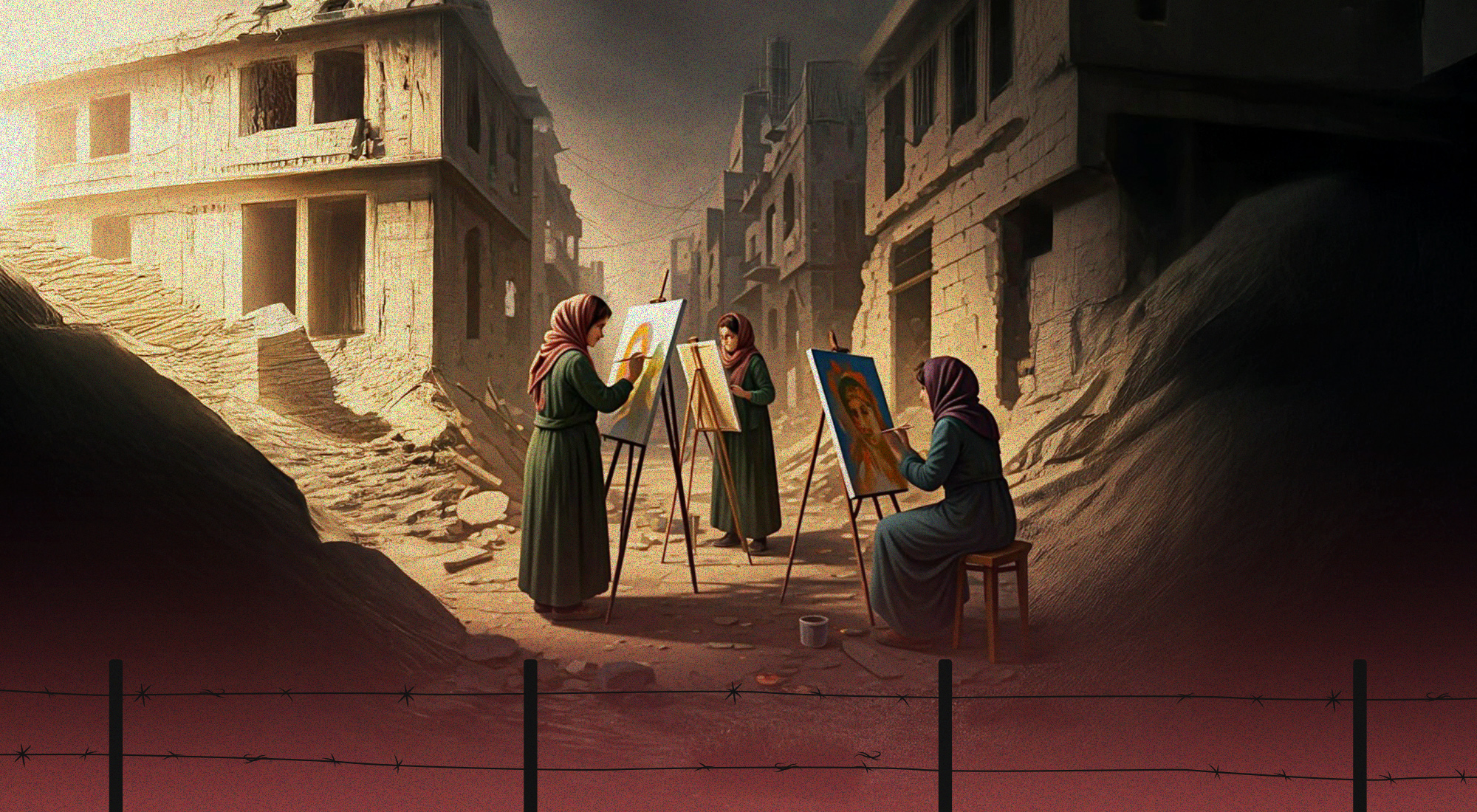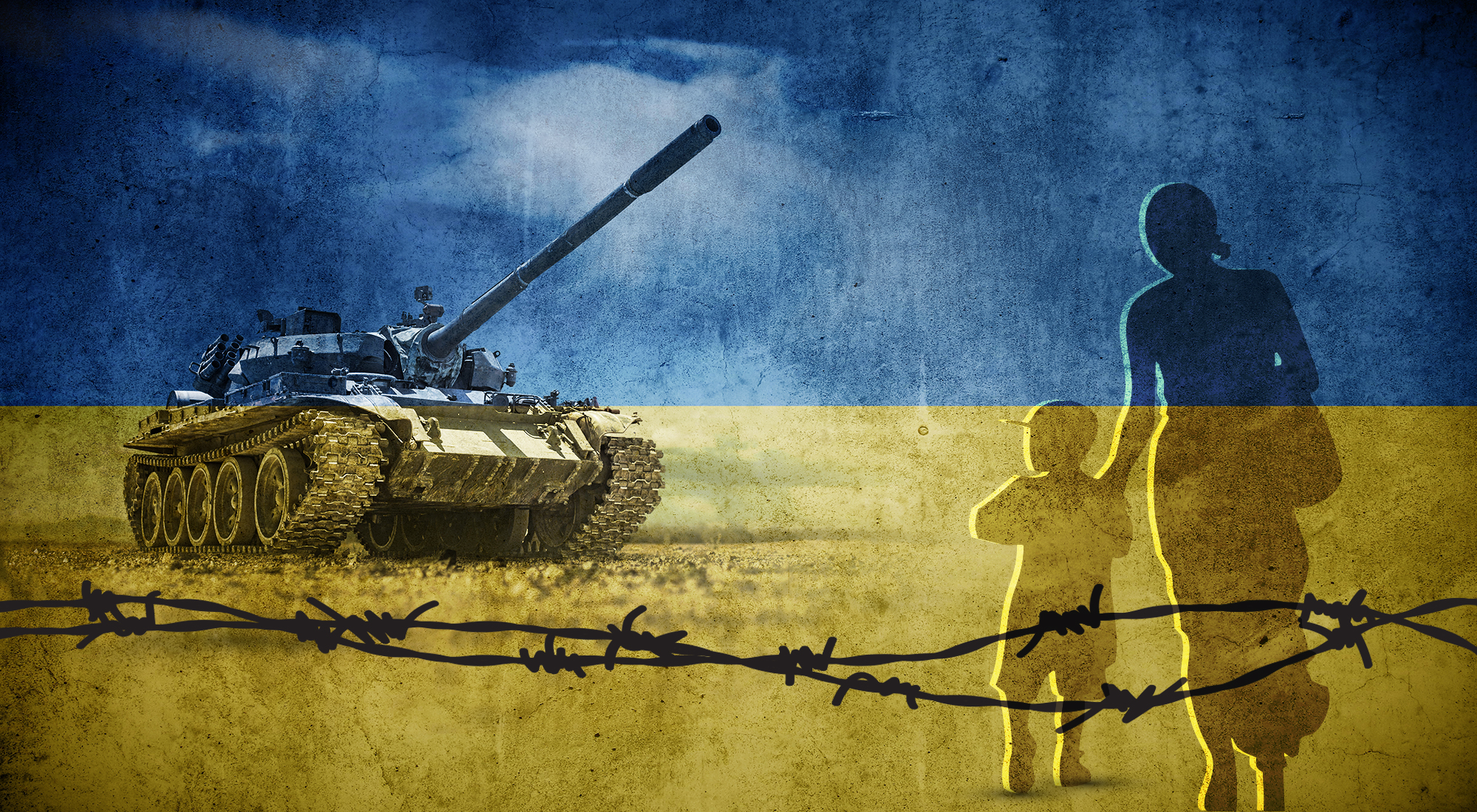As the Coronavirus disease (Covid-19) outbreak continues to create havoc globally, registering over 750,000 cases and killing nearly 36,000 people in 199 countries until March 30, calls have been made for streamlining trans-national cooperation and reinforcing regional and international organizations. The need of the hour is a consolidated front to address the multidimensional threats posed by the pandemic to all of humanity, and to contain its dire global repercussions on all aspect of human life.
The extraordinary G-20 Summit video meeting on March 26 was a response to this global crisis and constitutes the first truly international effort to tackle the threat nearly three months after its outbreak in China earlier this year. The meeting – organized and chaired by Saudi Arabia – discussed the global nature of the crisis and explored ways to coordinate international efforts to deal with it.
This paper probes the importance of streamlining international cooperation to combat the Covid-19 pandemic, its challenges in the absence of such cooperation, and ways to build on this momentum across the world. It also presents the outcome of the G-20 Summit meeting, especially the measures taken to consolidate international efforts to tackle the repercussions of the pandemic around the world.
National lockdown vs. pandemic globalization
The emergence of Covid-19 in the Chinese city of Wuhan, in late 2019, and its speedy outbreak around the world, is an outcome of globalization that has turned the world into a small interconnected village. This world is defined by high-tech communications and means of transport that help people, investments, and capital to move across borders easily and very quickly. This mobility makes it easy for any disease to spread like wildfire through the world, as was the case with Covid-19, in what has become known as “globalization of epidemics” reflecting one of the negative manifestations of globalization.
Prevention of the rapid spread of Coronavirus inside China, and its spread across China’s borders, required international cooperation from the very beginning. This is based on a premise that everyone should have been aware that this virus would not remain confined to China, not only because of globalization and human outreach but also, and more importantly, because of China’s international status and its economic ties around the world. China is the second-largest economy in the world and the biggest exporter of commodities. It has roughly one-fifth of the world’s population. This meant the transmission and the spread of the virus around the world were inevitable at some stage.
What is strange and striking, however, is that the response of many countries to the threat was lockdown-oriented and far from the collaborative action needed due to the globalized nature of this virus. These countries resorted to preventive policies based mainly on introversion and an attempt to prevent the pandemic from reaching out to them, such as border closures, travel and flight bans, curfews, and other precautionary measures.
Although important, these measures alone have not been sufficient to counter this pandemic especially in the absence of cooperation mechanisms. Various countries have tried to tackle the virus on their own and with their different healthcare capabilities, which have proven to be limited and insufficient even in the largest countries in the world. Even the UN Secretary-General Antonio Guterres had to warn that the lives of millions would be at risk unless the world shows greater solidarity in countering Covid-19.
Another major concern is that several international powers – including major ones – have been engaged in conflicts raising doubts about their seriousness to cooperate to confront the threat of the pandemic. The US-China blame game can be cited as an example. Beijing accused Washington of deliberately creating fear and blowing things out of proportion about Coronavirus to defame China and tarnish its image. Meanwhile, President Donald Trump used the term ”Chinese Virus“ to describe Covid-19, which infuriated China.
Some media outlets reported Trump’s attempt to buy a vaccine that Germany’s CureVac was developing, for $1 billion. He is said to have negotiated for his country exclusive right to produce, market and use the vaccine, which infuriated German officials and prompted the German finance minister to say that his country was not “for sale”. Chinese foreign ministry spokesman, Zhao Lijian, suggested that the virus was brought by the US to the Chinese city of Wuhan.
Not only China and the US, who are engaged in a very competitive relationship, but also some extremist right-wing parties, anti-globalization forces, and nationalist advocates in the West took the advantage of the spread of Covid-19 to re-affirm their calls for lockdown and anti-immigrant policies. Meanwhile, extremist religious groups in the Arab and Islamic world seized the opportunity to regain influence and attract more individuals to their ranks by promoting religious rhetoric that suggests the spread of this pandemic as divine wrath due to lack of faith and infighting among “believers”!
Moreover, policies of national isolation to confront the threat of the pandemic, and the apparent absence of international solidarity in addressing them, has led several researchers and observers to raise questions about the future of the international order and regional mechanisms. The European Union, in particular, was the most affected by this crisis, with deaths exceeding 20,000. A telling indication of the crisis facing the country was the statement made by Italian Prime Minister Giuseppe Conte on March 29, 2020, in which he warned that the entire EU “could lose its raison d’être” unless it rises to the challenge posed by Covid-19.
Many political forces in Europe, especially belonging to the right-wing, have raised questions regarding the utility of the European Bloc. This happened as countries did not cooperate in addressing an existential crisis such as the Covid-19 pandemic, and as France and Germany imposed restrictions on medical supplies export to the rest of the EU.
Although this seems understandable given the fact that these countries want to protect themselves and their citizens their behavior has provoked resentment among the Italian public. This was evident in the statement of the Italian PM as well as of the country’s Ambassador to the EU on March 23, in which he stated that the EU should not leave Italy alone in this crisis as it did previously with the refugee crisis. Footages broadcast by the media also showed Italians lowering the European flag and replacing it with the Chinese, after Beijing provided Italy with some assistance.
Italians were not the only people who got provoked. Austrian Prime Minister Sebastian Kurz stated that “the principle of solidarity is idle in Europe in this dangerous situation,” while Czech Prime Minister Andrej Babis, who rushed to close his country’s borders with 15 countries, said that the “European countries have not been able to coordinate the situation among themselves.”
In the first phase of Covid-19 pandemic, the world seemed less supportive, less coordinated, and less cooperative. This in itself might have contributed to the rapid spread of the pandemic and aggravation of its serious repercussions on health, humanitarian, economic, and even strategic and security levels.

Strengthening international cooperation:
The fact that collective action is required to confront global threats is incontrovertible. The various crises the world has experienced show that no single nation, no matter how powerful and developed, can confront any crisis of a global nature on its own. International cooperation is also imperative to achieve positive and credible results, especially in light of the rise of globalization and the speed at which crises spread across borders. If this is a common problem, then crises related to the spread of pandemics are more urgent, because the threat they pose targets all human beings, irrespective of class or strata they belong to, whether they are rich and poor, or the political system they follow.
The importance of strengthening international cooperation in countering Covid-19 is reinforced by many basic factors:
The spread of pandemics, in general, has devastating consequences on human societies at all levels. According to the World Bank, the spread of a very dangerous pandemic around the world might kill tens of millions of people, disrupt economic life, and destabilize national security. This is affirmed by the serious consequences of the Covid-19 pandemic on human, economic and strategic levels, being witnessed around the world today.
The continuation of this dangerous situation, or its aggravation in the future, will increase the severity of the threat and repercussion of the pandemic on humanity. Beside increasing human casualties worldwide, counting tens of thousands, and infections that have exceeded 750,000, and is expected to reach 1 million very soon, the world economy has stepped into a “recession”, according to IMF Director, Kristalina Georgieva, on March 27, 2020. This came as a result of the almost complete halt to travel and tourism, and the disruption of many vital economic sectors, forcing several countries to approve unprecedented economic rescue plans. The US, for example, has approved the largest $2.2 trillion economic rescue plan in its history to address the economic consequences of the pandemic.
Several countries have also announced unprecedented rescue plans to cope with the economic fallout of the pandemic. More than 80 developing countries have asked the IMF for urgent assistance to support their national economies, according to the IMF director. At the political and strategic levels, many substantive studies have discussed possible changes in the global balance of power, the patterns of interactions and alliances in the international system considering the consequences of this pandemic.
The crisis has proved that all countries, including the developed ones, have been unable to prevent the spread of Covid-19 on their territories, leave alone addressing its serious consequences. This has happened despite the scientific and medical advancements these countries have achieved. In countries such as the US, Italy, France, and Germany, healthcare facilities have suffered enormously under the pressure of growing infections among their citizens and the inability of hospitals and ICUs to accommodate them all. These countries have also suffered a major shortage of equipment supplies needed to protect medical personnel, which underlines the importance of strengthening international cooperation in such circumstances.
The production of Covid-19 vaccines requires the strengthening of scientific cooperation between different countries in the field of medical research. It isn’t possible considering the competition that has started in recent times with efforts being made by each country or company to get a head-start at the expense of others. Knowledge cooperation and exchange of scientific research data are extremely vital in expediting the efforts to manufacture vaccines and end the dangerous chain of infection caused by this virus.
The way the developed and developing countries have suffered from Covid-19 makes many observers fear that the pandemic’s spread to poor countries will be even more disastrous considering their lack of resources. This calls for serious international cooperation to protect all countries, including poor and developing ones, against the pandemic’s serious repercussions.
The world has made significant strides in international cooperation in the area of public health and fighting epidemics and communicable diseases in recent decades. International regulatory bodies responsible for strengthening international cooperation have been established, most notably the World Health Organization (WHO) and the World Bank (WB). These organizations have directed part of their policies and resources to support the health sector.
Many international initiatives and partnerships in the area of disease and epidemic control have also been approved. These include the Global Health Monitoring Board, an independent monitoring and accountability body established in response to recommendations by the UN Secretary-General’s Global Task Force on Global Health Crises in 2017, the Global Fund to Fight AIDS, Tuberculosis, and Malaria, and the Global Alliance for Vaccines and Immunization. Many other initiatives and institutions have benefited from international cooperation and played important roles in promoting public health and fighting diseases worldwide.
Although international cooperation in countering Coronavirus pandemic has not risen to expectations, some forms of cooperation and solidarity have been achieved among countries and between them and the WHO. In a way, this has contributed toward the exchange of experiences in terms of responding to Covid-19 pandemic. The best evidence is the similarity of measures taken by almost all the countries to address the pandemic and the ongoing exchanges between countries and the WHO.
Many countries have also opened up channels of cooperation and coordination, especially with China, to learn from its experience. Economically, international economic institutions, like the World Bank and IMF, have developed plans to support national economies in addressing the crisis. The G-20 finance ministers and governors of central banks held a video conference to discuss the effects on the economy and agreed to coordinate action ahead of its Virtual Summit, which provided an expression of growing international awareness of the importance of cooperation in confronting this pandemic.
The G-20 summit and global response:
The G-20 is one of the largest international blocs with a significant influence on global politics. Collectively, G-20 members represent around 80 percent of the world’s economic output, two-thirds of the global population and three-quarters of international trade.
Although initially emerging as a bloc aimed at coordinating international economic cooperation, the G-20 became an important international framework for discussing international economic, social, political and security issues. Therefore, the emergency meeting, organized and chaired by Saudi Arabia via video conference on March 26, constituted an important event. This was the first high-level international meeting to discuss means to enhance international cooperation and coordinate international efforts to combat Covid-19 and its growing threats. Several factors reinforce the significance of this virtual summit:
First: Alongside G-20 leaders, the Summit included leaders and heads of many international organizations such as the WHO, IMF, WBG, UN, FAO, FSB, ILO, OECD, and WTO. Regional organizations were represented by Vietnam; the Chair of the Association of Southeast Asian Nations (ASEAN), South Africa; the Chair of the African Union (AU), the United Arab Emirates; the Chair of the Gulf Cooperation Council (GCC) and Rwanda the Chair of the New Partnership for Africa’s Development (NEPAD). This large array of participants is significant when it comes to international cooperation to confront a global crisis.
Second: A cooperative and conciliatory tone was witnessed among all the leaders participating in the summit. They reiterated the importance of strengthening cooperation and the significance of unifying international efforts to protect the world, especially fragile countries that do not have the capabilities to counter the pandemic. This marked awareness of the importance of cooperation and coordinating global efforts, even though differences, disparities and divisions often characterize international meetings.
Third: This relates to the emphasis on a comprehensive way to address the pandemic. The Summit focused on the different aspects of the crisis, from the health and humanitarian to economic, political and strategic dimensions. This demonstrated an awareness of the different dimensions of this multi-dimensional crisis.
Fourth: The Summit highlighted an Arab-Gulf dimension to the important role played by Saudi Arabia as evident in its urgent call for this Summit. It also ensured an effective preparation and management of its proceedings, which led to some important outcomes. This emphasizes the international status that Saudi Arabia enjoys and the role it plays globally. This is also related to the UAE’s active participation in the activities related to the Summit, representing the GCC. The participation went alongside the many policies and initiatives of cooperation and solidarity adopted by the UAE toward countries afflicted by the pandemic.
Fifth: Another factor relates to the outcome of the G-20 Summit, which was important for coordinating international efforts to confront the pandemic:
Healthcare sector: The Summit’s final communiqué affirmed the full support of G-20 leaders to WHO and their commitment to strengthen the framework to coordinate international efforts to address Covid-19 pandemic. They also pledged to fill the financing gap in response to the pandemic as well as for increasing the capacity of medical supplies, manufacturing and strengthening response capabilities to infectious disease, and sharing clinical data.
Supporting economies: The G-20 leaders pledged to inject $5 trillion into the global economy through national measures aimed at mitigating the effects of the pandemic. They also pledged “to do whatever it takes and to use all available policy tools to minimize the economic and social damage caused by the pandemic, restore global growth, maintain market stability, and strengthen resilience”.
International cooperation: The G-20 leaders affirmed that they are “deeply committed to forming a united front to confront this common danger”. They also expressed their concern about the serious risks to fragile countries, particularly in Africa, and to the groups of the population including refugees. Also, G-20 leaders acknowledged the need to strengthen global financial safety nets and national health systems.
There has also been some criticism of the Summit’s outcomes, especially about the lack of a specific mechanism to ensure implementation of agreed-upon measures. Failure of the Summit to settle some controversial issues has also been criticized. These include customs barriers and the restrictions imposed by some countries on the export of medical supplies. However, these do not diminish the significance of the Summit as a first and most important multilateral meeting to coordinate international efforts to address Covid-19.
Conclusion:
The Coronavirus pandemic crisis has proved that no single country, no matter how powerful or developed, can counter a global crisis on its own. The global cooperation and coordination among all international efforts to fight this pandemic is the right, and perhaps the only, way to protect humanity from its danger, and contain its negative effects on the whole world. The G-20 Summit has set an important milestone in the process of strengthening international cooperation, collective action and uniting global efforts to address this pandemic. It will help develop a global response to possible future epidemics and safeguard human security and prosperity.








